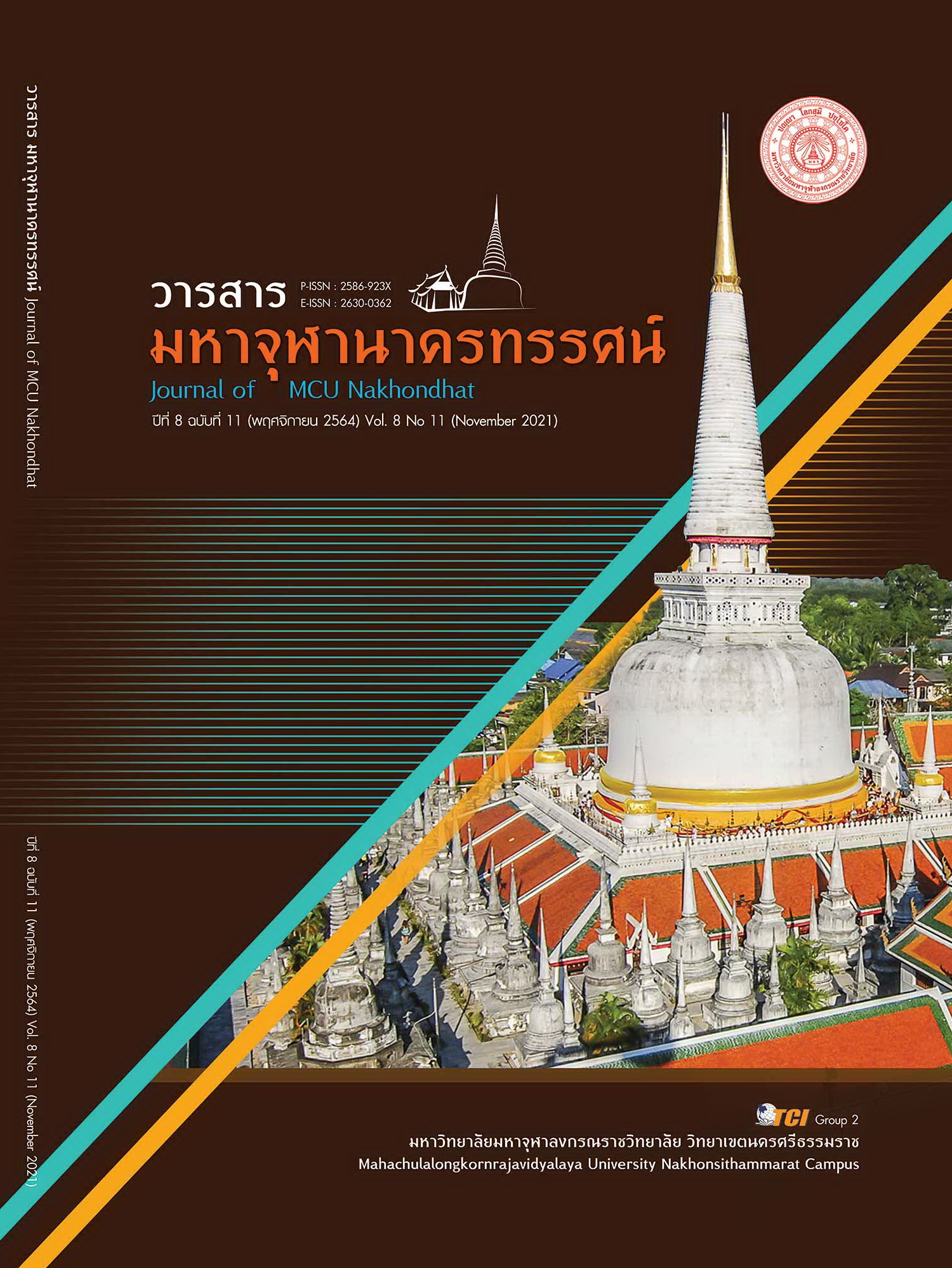THE DEVELOPMENT OF AN INSTRUCTIONAL PACKAGE ON SOCIAL AND EMOTIONAL INTELLIGENCE OF EARLY CHILDHOOD
Main Article Content
Abstract
The objectives of this article were to: 1) develop an instructional package on social and emotional intelligence of early childhood, 2) promote social and emotional intelligence of early childhood, 3) compare social and emotional behaviors of early childhood before and after the experiment by employing experimental research, one group pretest - posttest design. The samples used in the study were 15 boys and girls of kindergarten 2 students aged 5 - 6 years old, studying during the second semester of 2015 academic year, Banplaiklong School, by Purposive Sampling. The research instruments were an instructional package on social and emotional intelligence of early childhood, and the Behavioral Assessment Checklist for Social and Emotional Intelligence of Early Childhood Children. The research results were: 1) there were eight sets of instructional packages on social and emotional intelligence of early childhood consisting of Activity Plans to develop social and emotional intelligence of early childhood as well as tales promoting social and emotional intelligence. The quality of the instructional packages had already been checked by experts and the conformity assessment was appropriate. 2) In terms of the behavioral scores on social and emotional intelligence of early childhood, the mean scores before and after the activities were 19.28 and 26.64 respectively. 3) When comparing the behavioral scores on social and emotional intelligence of early childhood before and after the activity, it was found that the average mean score after the activity using the instructional package on social and emotional intelligence of early childhood was 7.36, significantly higher at .01. It revealed that the early childhood has higher social and emotional intelligence than before the experiment of activity.
Article Details
References
กัญญพัชร พงษ์ช้างอยู่. (2560). นิทานต่อความฉลาดทางอารมณ์และพัฒนาการทางภาษาของเด็กปฐมวัยศึกษาผลของโปรแกรมส่งเสริมการเรียนรู้ด้วยการเล่า. ใน วิทยานิพนธ์ตามหลักสูตร พยาบาลศาสตรมหาบัณฑิต (สาขาวิชาการพยาบาล เด็ก). ชลบุรี: มหาวิทยาลัยบูรพา.
บุญเชิด ภิญโญอนันตพงษ์. (2545). ประมวลสาระชุดวิชาการพัฒนาเครื่องมือสําหรับการประเมินผล การศึกษา. (หน่วยที่ 3). กรุงเทพมหานคร: มหาวิทยาลัยสุโขทัยธรรมาธิราช สาขาวิชา ศึกษาศาสตร์ มหาวิทยาลัยสุโขทัยธรรมาธิราช.
พรรณทิพย์ ศิริวรรณบุศย์. (2553). ทฤษฎีจิตวิทยาพัฒนาการ. (พิมพ์ครั้งที่ 5). กรุงเทพมหานคร: แอคทีฟ พริ้นท์.
ศิริวรรณ พิริยคุณธร, และคณะ. (2559). การพัฒนารูปแบบการส่งเสริมเด็กวัยเรียนให้เป็นคนดี เก่ง และสุขของนักเรียนในระดับประถมศึกษาปีที่ 6 จังหวัดสงขลา: การวิจัยเชิงปฏิบัติการแบบมีส่วนร่วม. วารสารพยาบาลสงขลานครินทร์, 36(3), 150-171.
สุรางค์ โค้วตระกูล. (2556). จิตวิทยาการศึกษา. (พิมพ์ครั้งที่ 11). กรุงเทพมหานคร: จุฬาลงกรณ์มหาวิทยาลัย.
อรัญญา กุฎจอมศรี. (2557). การพัฒนาความฉลาดทางอารมณ์ของเด็กปฐมวัยด้วยรูปแบบการจัดการเรียนรู้ SMILE. ใน ปริญญานิพนธ์ กศ.ด.(การศึกษาปฐมวัย). กรุงเทพมหานคร: บัณฑิตวิทยาลัยมหาวิทยาลัยศรีนครินทรวิโรฒ.
อุบลรัตน์ เพ็งสถิต. (2559). จิตวิทยาพัฒนาการวัยเด็ก. กรุงเทพมหานคร: มหาวิทยาลัยรามคำแหง.
Bandura, A . (1986). Social foundations of thought and action: A social cognitive theory. Englewood Cliffs, NJ: Prentice- Hall, Inc.
Erikson, E. H. (1968). Identity: Youth and Crisis. New York: Norton & Company.


